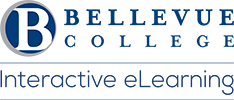College campuses are designed, with features such as wheelchair ramps and ADA compliant door-handles, to be universally accessible to all qualified students. A February 12th, 2015 New York Times article “Harvard and MIT Are Sued Over Lack of Closed Captions” highlights the necessity for institutions of higher education to provide learning materials which are also universally accessible by discussing federal class action lawsuits recently filed against Harvard University and MIT by the National Association of the Deaf (NAD).
The primary issue in both lawsuits is that Harvard and MIT have extensive online content which does not make use of intelligible closed captions, thereby making the content “inaccessible for individuals who are deaf or hard of hearing.” Both complaints claim that this lack of accessibility violates the 1990 Americans with Disabilities Act (ADA) and the 1973 Rehabilitation Act and “seek a permanent injunction requiring [Harvard and MIT] to provide closed captioning” for all of their online materials. Previous lawsuits, filed by the NAD against Netflix and iTunes were successfully settled with both companies committing to a deadline by which all of their online content would include intelligible closed captions or subtitles for deaf consumers.
Accessibility is not just good educational practice in higher education, it is the law. Title II of the ADA specifically states that colleges and public universities are required to provide every qualified student with the opportunity to be successful in all programs offered by the institution. When it was amended in 2008, the ADA extended the meaning of disability, increasing the number of people covered by the law.
In addition to the ADA, the Rehabilitation Act of 1973 requires that institutions of higher education, which receive funding from the Federal Government, are required to provide access to adaptive aids and support services without discrimination. The law was amended in 1998 to specifically mandate that all software, hardware, telecommunications devices and web-based programs and information must be accessible.
Click here to read the New York Times article in full
Click here to read more about creating accessible online learning materials.
“Harvard and MIT Sued” by Elizabeth Demong, BC Connect, Bellevue College eLearning is licensed under CC BY-SA 4.0
Last Updated November 5, 2019
